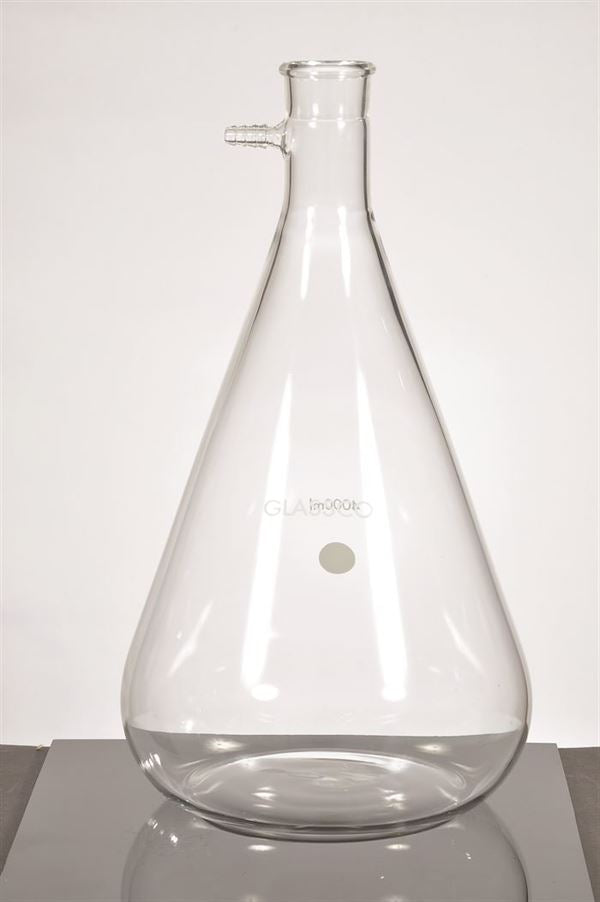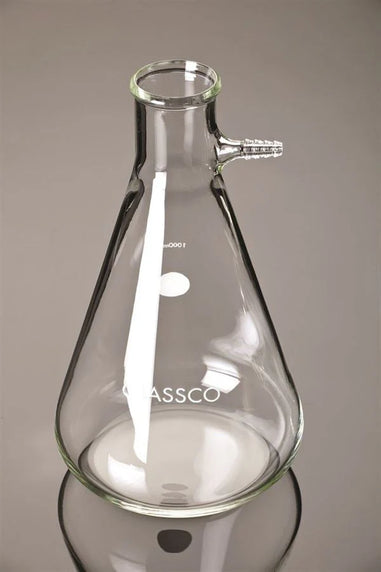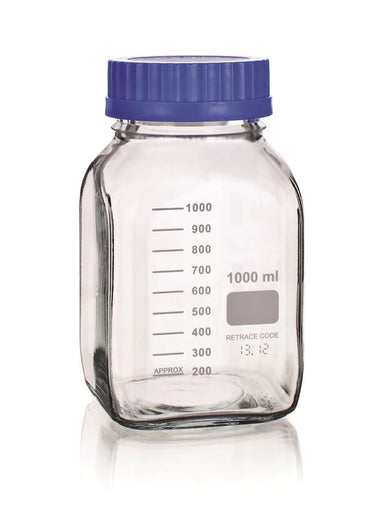- No products in the cart.
In the vast realm of laboratory equipment, the filtration flask stands out as a pivotal tool in various scientific processes. From chemical experiments to biological studies, filtration flasks play a crucial role in ensuring the accuracy and safety of laboratory work. Understanding the importance of these flasks is essential for any lab technician, researcher, or scientist aiming to achieve reliable and reproducible results. This blog delves into the significance of filtration flasks, their applications, and best practices for their use in laboratory settings.
What is a Filtration Flask?
A filtration flask, also known as a vacuum flask or Buchner flask, is a thick-walled container designed to withstand the pressure changes associated with vacuum filtration. It typically features a sidearm for connecting to a vacuum pump and is used in conjunction with a Buchner funnel and filter paper to separate solids from liquids. The flask’s robust construction ensures it can endure the stresses of vacuum pressure without breaking or cracking.
Applications of Filtration Flasks
Filtration flasks are utilized across various scientific disciplines for numerous applications:

-
Chemical Synthesis and Analysis: In chemistry, filtration flasks are used to purify compounds, remove precipitates, and isolate products from reaction mixtures. They are essential for processes such as recrystallization and gravimetric analysis.
-
Microbiology and Biotechnology: In microbiology labs, filtration flasks help in the sterilization and separation of microbial cultures. They are also used in biotechnology for the filtration of cell cultures and media.
-
Environmental Science: Filtration flasks play a vital role in environmental testing, such as water and air quality analysis. They are used to filter samples to remove particulates before further analysis.
-
Pharmaceuticals: In the pharmaceutical industry, filtration flasks are employed to filter active pharmaceutical ingredients (APIs) and intermediates, ensuring the purity and quality of the final product.
Importance of Filtration Flasks
Precision and Accuracy
One of the primary reasons filtration flasks are indispensable in laboratories is their contribution to the precision and accuracy of experiments. The vacuum-assisted filtration process ensures rapid and efficient separation of solids from liquids, reducing the likelihood of contamination and improving the clarity of the filtrate. This precision is crucial for obtaining reliable data, especially in quantitative analyses where even minor impurities can skew results.
Safety and Efficiency
Filtration flasks enhance laboratory safety and efficiency. Their design allows for the safe handling of volatile or hazardous substances under reduced pressure, minimizing the risk of exposure to harmful chemicals. The use of vacuum filtration also speeds up the filtration process compared to gravity filtration, saving valuable time and resources.
Versatility
Filtration flasks are highly versatile, accommodating a wide range of filtration needs. Whether dealing with large volumes of liquids or small-scale sample preparation, these flasks can be adapted to various experimental setups. This flexibility makes them a staple in both academic and industrial laboratories.
Best Practices for Using Filtration Flasks
To maximize the effectiveness and lifespan of filtration flasks, it is essential to follow best practices in their use and maintenance:
-
Proper Assembly: Ensure that the filtration apparatus is correctly assembled, with a secure connection between the flask, Buchner funnel, and vacuum source. Check for any leaks that could compromise the vacuum seal.
-
Filter Paper Selection: Choose the appropriate filter paper based on the particle size and nature of the sample. The right filter paper ensures efficient separation and prevents clogging.
-
Cleaning and Maintenance: Regularly clean the filtration flask to remove any residues that could affect subsequent experiments. Use appropriate cleaning agents and techniques to avoid damaging the flask. Inspect the flask for any signs of wear or damage, such as cracks or chips, and replace it if necessary.
-
Safe Handling: Handle the filtration flask with care, especially when working with hazardous or reactive substances. Always wear appropriate personal protective equipment (PPE), such as gloves and safety goggles, to protect against spills and splashes.
-
Storage: Store the filtration flask in a safe, dry place when not in use. Avoid stacking heavy objects on top of the flask to prevent accidental breakage.
Conclusion
In conclusion, filtration flasks are a fundamental component of laboratory equipment, offering precision, safety, and versatility in various scientific applications. Their ability to efficiently separate solids from liquids under vacuum conditions makes them invaluable in chemical synthesis, microbiology, environmental science, and pharmaceuticals. By following best practices in their use and maintenance, laboratory professionals can ensure the reliability and longevity of these essential tools. Understanding the importance of filtration flasks empowers scientists and researchers to achieve accurate and reproducible results, advancing scientific knowledge and innovation.
For over 40 years, Lab Pro Inc. is your steadfast source for premium lab glassware equipment including filtering flasks, hand tools, lab equipment, chemicals, and PPE apparel. Trusted by aerospace industries, medical device companies, and laboratories globally, we epitomize exceptional quality in every product. Experience the convenience of next day service in California. Contact us online or at 888-452-2776 to explore solutions tailor-made for the laboratory industry. Elevate your experiments with Lab Pro Inc. – your partner in precision and excellence.












































